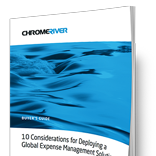Many business travelers may choose their hotels based on one part expense policy compliance, one part colleague input, and one part online reviews. But if looking at online reviews means glancing at the overall numerical or star rating average for the hotel, they could be missing out on some key information that could make or break their stay.
Looking at the hotel’s online star or numerical ratings is not enough, according to researchers from Cornell University’s Center for Hospitality Research. Researchers instead analyzed the text of online customer reviews using a text-mining method they developed, one that used algorithms to process natural language. The study revealed insights that could be useful to business travelers as well as hotel operators when it comes to determining how guests really feel about their experience.
STUDY INSIGHTS
Entitled “What Guests Really Think of Your Hotel,” the study examined the text from 5,830 reviews for 57 different Moscow hotels posted on TripAdvisor. The reviews were written in English and posted over a one-year period, from 2012 to 2013. Researchers uncovered the following:
- Negative comments carry more weight than positive comments, but the extra impact is not factored into the equation when positive and negative scores are averaged into an overall score.
- Hotels fare better if they consistently provide an overall moderately good experience, rather than having exceptionally good and exceptionally bad reviews simultaneously. Horrible service will always outweigh any positive aspects or amenities the hotel provided.
- Amenities are an important factor in online reviews, particularly Wi-Fi, breakfast and the bed. The top five amenity related terms likely to pop up in online reviews are Wi-Fi, breakfast, bed, food and free.
- When guests are discussing a specific hotel’s location, they are most apt to use terms that include location, located, clean, walk, metro and station.
- When talking about the overall hotel experience, the most popular terms were typically positive. The top 10 terms used included excellent, great, service, recommend and staff.
- Business travelers are big on leaving online reviews, with more than 40 percent of the overall reviews posted for all types of hotels coming from business travelers. The group that came in second for posting the greatest number of reviews was couples.
- Travelers value different things, depending on whether they’re staying at high-tier, middle-tier or low-tier hotels.
In general, here's what travelers valued the highest at hotels:
- High-tier hotels: Overall experience valued most
- Middle-tier hotels: Amenities and location valued most
- Low-tier hotels: Value and transactions valued most
HOW HOTEL OPERATORS CAN BENEFIT
Study authors said hotel operators can glean insights from online reviews, but only if they’re willing to put effort into analyzing them. Online reviews can be a valuable supplement to the traditional satisfaction surveys, provided operators engage in text-mining methods and take note of what each type of guests is looking for in a hotel stay.
Information discussed in the text of a review may yield much deeper insights on how hotels can better meet guest expectations and improve their overall operations. This particularly applies to longer reviews that focus on only a few issues, issues that make a great impact on the reviewer.
Make a great impact on your expense report efficiency with Chrome River.
Search
Subscribe
Latest Posts
Posts by Category
Our choice of Chrome River EXPENSE was made in part due to the very user-friendly interface, easy configurability, and the clear commitment to impactful customer service – all aspects in which Chrome River was the clear winner. While Chrome River is not as large as some of the other vendors we considered, we found that to be a benefit and our due diligence showed that it could support us as well as any large players in the space, along with a personalized level of customer care.
We are excited to be able to enforce much more stringent compliance to our expense guidelines and significantly enhance our expense reporting and analytics. By automating these processes, we will be able to free up AP time formerly spent on manual administrative tasks, and enhance the role by being much more strategic.
